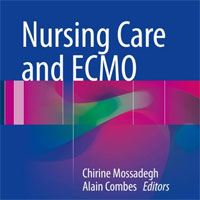Tag: coronavirus

Apremilast Not Likely to Reduce Time to Recovery or Mortality in Critically Ill Patients in I-SPY COVID-19 Trial
Quantum Leap Healthcare Collaborative (QLHC), the sponsor of the I-SPY COVID Trial, announced that apremilast (Otezla), made by Amgen, has been dropped for futility. Apremilast was chosen for testing in the I-SPY COVID Trial... read more

Endemic COVID-19 Needs Novel, Prognostic Tests to Predict Severity and Progression
COVID-19 has evolved into a long-term population health problem that requires new types of diagnostics. Diagnostic developers, therefore, are called on to expand their developmental focus to include novel tests to predict... read more

Could a Glass of Wine Diagnose Long COVID?
Acute COVID-19 infection ranges from no symptoms (asymptomatic) to life-threatening. What about long COVID (the symptoms occurring more than three weeks after infection, also known as post-acute COVID syndrome)? Could... read more

Body Mass Index and Risk for COVID-19
Obesity* is a recognized risk factor for severe COVID-19, possibly related to chronic inflammation that disrupts immune and thrombogenic responses to pathogens as well as to impaired lung function from excess weight. Obesity... read more

Convalescent Plasma Doesn’t Prevent Further COVID-19 Progression in At-Risk Patients
Convalescent plasma (CP) from recovered patients with COVID-19 doesn't prevent further COVID-19 progression in at-risk people who visit the emergency room (ER). Early this week, the National Institutes of Health (NIH)... read more

Cerecor Significantly Reduced Respiratory Failure and Mortality in Phase 2 Clinical Trial in Patients Hospitalized with COVID-19 ARDS
Final analysis inclusive of the 60-day safety update in the randomized placebo-controlled study demonstrated CERC-002 was statistically significant in reducing respiratory failure and mortality at Day 28 in patients hospitalized... read more

FDA Authorizes Adaptive Biotechnologies T-Detect COVID Test
U.S. Food and Drug Administration issued an emergency use authorization (EUA) for the T-Detect COVID Test developed by Adaptive Biotechnologies. The T-Detect COVID Test is a next generation sequencing based (NGS) test... read more

Medical oxygen crisis: a belated COVID-19 response
More than a year into the pandemic, global health agencies have set up a taskforce to address the vast unmet demand for medical oxygen. The global pandemic response mechanism, the Access to COVID-19 Tools Accelerator (ACT-A),... read more

High-flow nasal oxygen in patients with COVID-19-associated acute respiratory failure
The use of high-flow nasal oxygen upon ICU admission in adult patients with COVID-19 related acute hypoxemic respiratory failure may lead to an increase in ventilator-free days and a reduction in ICU length of stay, when... read more

Chloroquine/Hydroxychloroquine for Treating or Preventing COVID-19 Infection
When given along with azithromycin, hydroxychloroquine increased the risk of any unwanted effects, but made no difference to the risk of serious unwanted effects (1 study; 444 people). Compared with lopinavir plus ritonavir,... read more

Efficacy of Serum Angiotensin II Levels in Prognosis of Patients with COVID-19
The serum angiotensin II levels decrease significantly in patients with coronavirus disease 2019, and this decrease is correlated with lung damage. There was no statistical significance between the serum angiotensin II... read more

Antiviral Drugs in Hospitalised COVID-19 Patients
These remdesivir, hydroxychloroquine, lopinavir, and interferon regimens had little or no effect on hospitalized patients with Covid-19, as indicated by overall mortality, initiation of ventilation, and duration of hospital... read more

Point-of-Care Ultrasound (POCUS) and COVID-19
COVID-19 is a disease caused by infection with SARS-CoV-2, a virus that affects multiple organ systems with numerous disease manifestations. COVID-19 has a specific tropism for the lower respiratory tract, and the most common... read more

No Significant Difference between Tocilizumab and Placebo in Severe COVID-19 Pneumonia Patients
In this randomized trial involving hospitalized patients with severe COVID-19 pneumonia, the use of tocilizumab did not result in significantly better clinical status or lower mortality than placebo at 28 days. In this... read more








